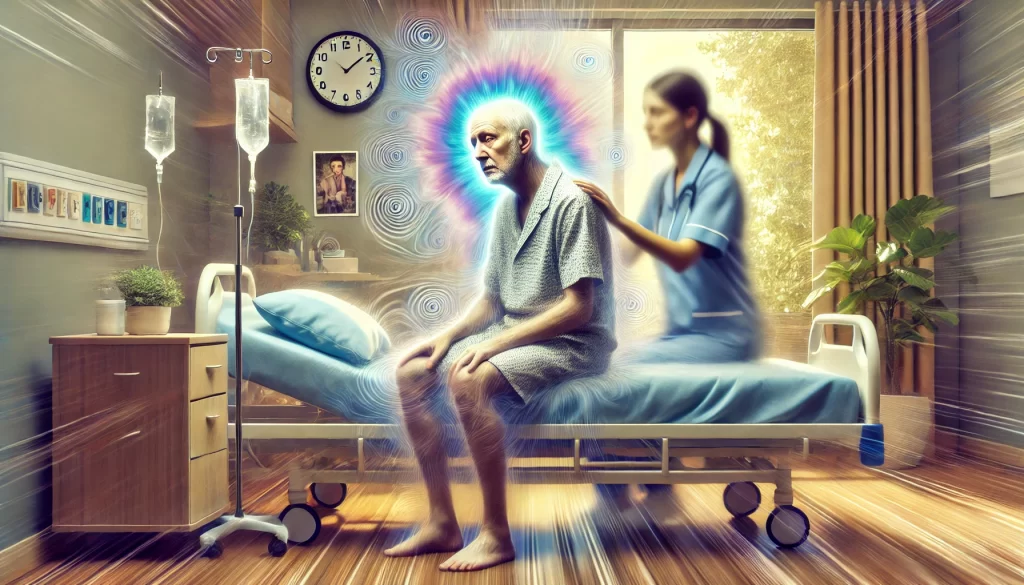Delirium
Delirium, also known as an acute confusional state, occurs when there is a sudden change in a person’s mental function, leading to confusion, altered awareness, and disruptions in thinking and perception. It can develop rapidly over hours or days and is often triggered by factors such as illness, side effects of medication, injury, or surgery.
Symptoms of Delirium
People with delirium may show symptoms such as:
- Confusion or increased disorientation
- Sleepiness and reduced responsiveness
- Agitation or restlessness
- Altered sleeping patterns, such as being awake at night
- Suspiciousness, paranoia, or hallucinations (seeing or hearing things that aren’t there)
Symptoms can fluctuate and may be worse in the evenings or overnight. Delirium usually lasts for a few days, but it may persist for weeks or months in some cases. Early recognition and treatment can reduce its severity and duration.
Causes of Delirium
Delirium is often triggered by a disruption in brain function due to factors such as:
- Infections (e.g., urinary tract infections, chest infections)
- Prescription medications, including their side effects or sudden withdrawal
- Dehydration or constipation
- Injuries, like fractures
- Alcohol withdrawal
- Surgery and associated stress
Risk factors include being over 65, having dementia, frailty, hearing or vision loss, and previous episodes of delirium.
Diagnosing Delirium
Diagnosis involves recognizing sudden changes in a person’s mental state, often using the 4A’s test or 4AT. This quick assessment may involve questions to assess orientation (e.g., the current year) and tasks that gauge attention and memory. Healthcare professionals identify delirium by comparing the person’s current and usual mental function.
Treatment of Delirium
Treating Triggers: Identifying and addressing underlying causes like infections, dehydration, or low oxygen levels is the first step in treatment. Often, delirium has multiple triggers that need to be managed together.
Treating Symptoms: Delirium symptoms can be distressing, such as paranoia, hallucinations, or disorientation. Reassurance, gentle communication, and carefully explaining the situation can help alleviate symptoms. Sometimes, healthcare professionals may use medications like antipsychotics if necessary.
Recovery Support: Recovery involves hydration, nutrition, engagement, and rehabilitation. The goal is to restore the person’s usual mental function.
Complications and Long-Term Impact
Complications of delirium may include immobility, falls, pressure sores, and isolation. In the long term, people who have had delirium are at a higher risk of developing dementia. Individuals may also experience post-traumatic stress symptoms, including intrusive memories and anxiety.
Supporting Someone with Delirium
- Ensure hearing aids, glasses, and dentures are easily accessible.
- Maintain a gentle and friendly approach.
- Communicate using simple, clear sentences.
- Keep familiar objects like photographs nearby.
- Provide regular orientation with a calendar or clock.
- Offer assistance with eating and drinking if it is safe to do so.
Delirium vs. Dementia
While delirium develops rapidly over hours or days and can often improve, dementia progresses over months or years and is typically irreversible. Delirium and dementia can coexist, and people with dementia are more likely to experience delirium.
Understanding and managing delirium involves prompt recognition, addressing underlying causes, and providing supportive care to aid recovery and minimize complications.







